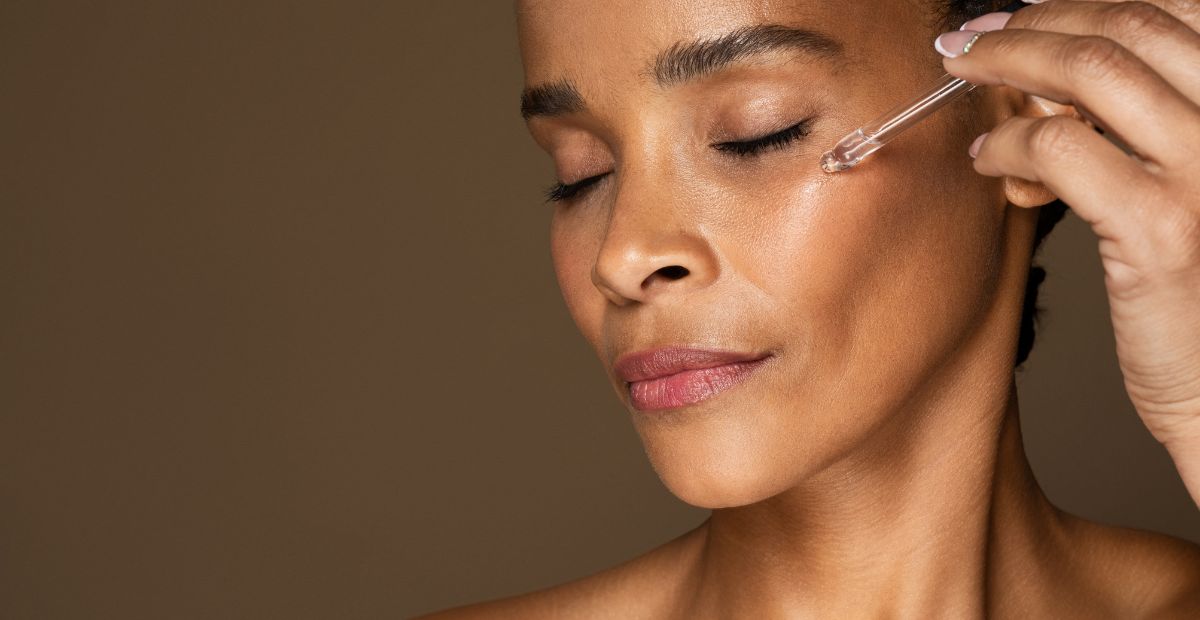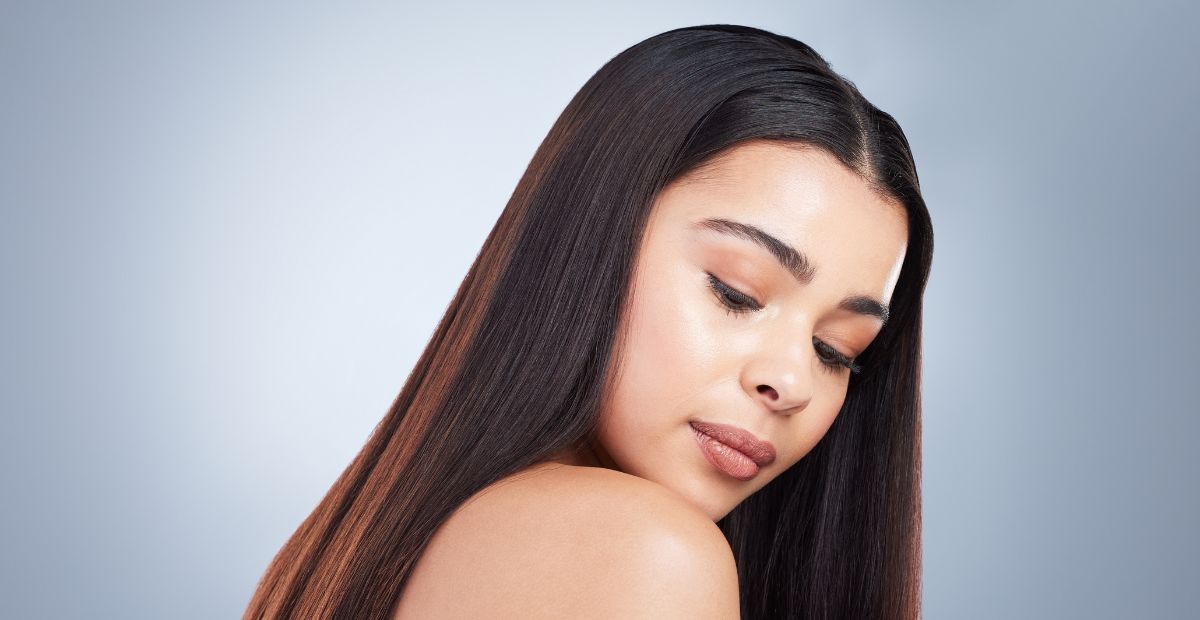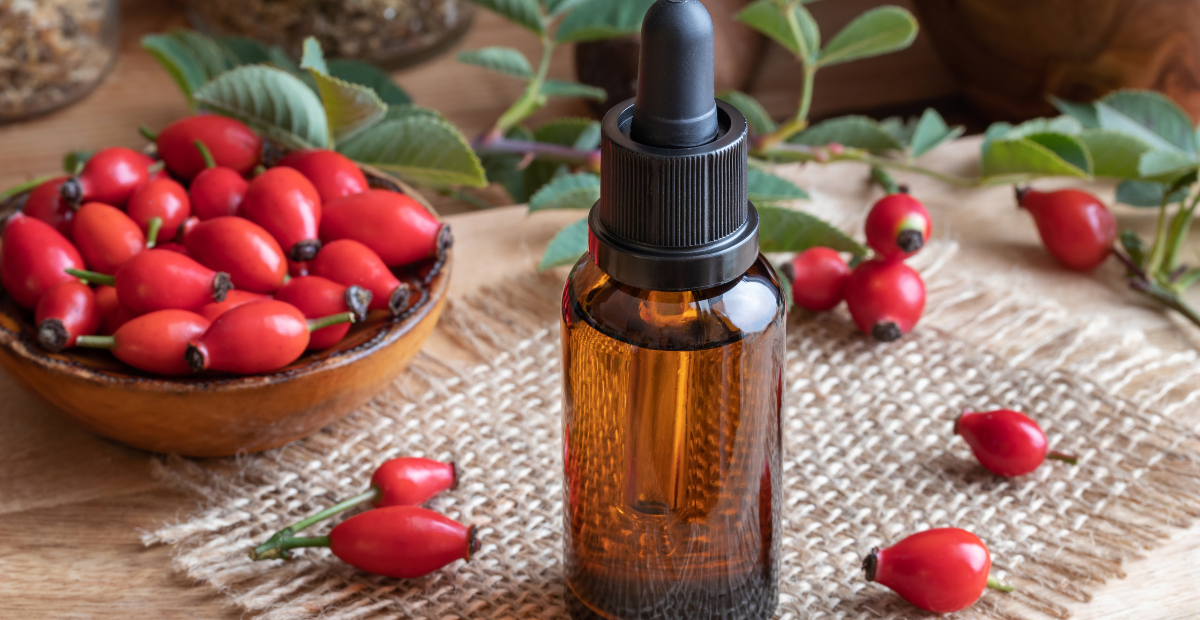Your Acne Fighter and Sun Guard: A Guide to Zinc for Skin
Onskin Content Team
Your guides through the skincare chaos
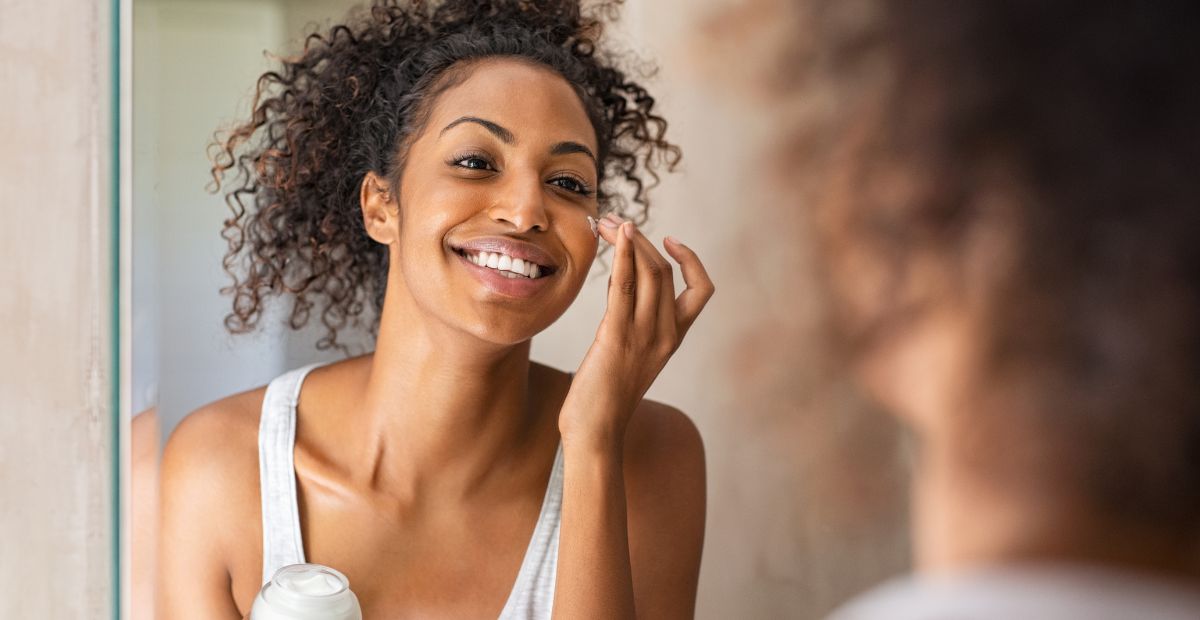
You’ve probably seen zinc pop up on sunscreen bottles, acne treatments, and even dandruff shampoos—but what’s the deal with it? Is zinc for skin really worth the hype, or is it just another ingredient having its 15 minutes of fame?
Well, spoiler: it’s the real deal. From calming breakouts to repairing the skin barrier and even giving anti-aging serums a boost, zinc is one of those multitasking ingredients that deserves a spot on your shelf and in your diet.
So let’s get into the science-backed zinc benefits for skin—no fluff, just facts (and some glow).
What Does Zinc Do for Skin?
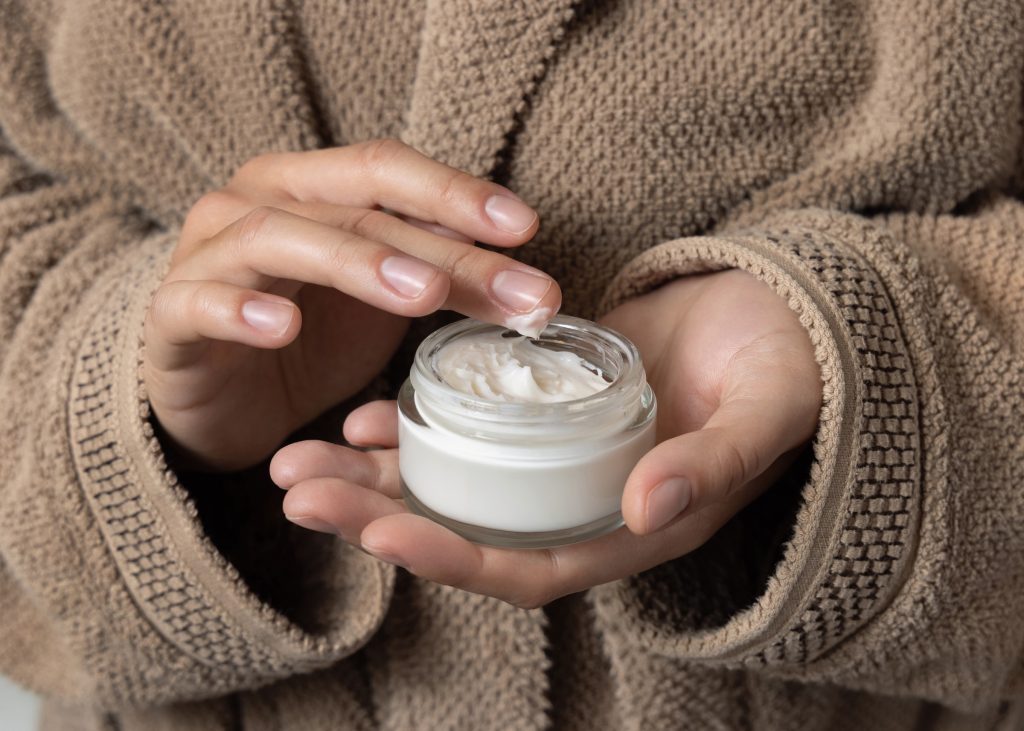
First, what is zinc?
Zinc is an essential mineral your body needs for everything from healing wounds to fighting infections. But when it comes to skincare, it’s the holy trinity of antibacterial, anti-inflammatory, and barrier-protective properties that makes zinc for face and body care so legit.
So, is zinc good for your skin? Let’s take a look at its powerful benefits:
- Antibacterial. It helps reduce acne-causing bacteria without creating resistance (unlike some antibiotics).
- Anti-inflammatory. Zinc calms irritated skin—perfect for inflammatory skin conditions like acne, eczema, and psoriasis.
- Barrier support. This ingredient encourages wound healing and reinforces the skin’s natural barrier, reducing sensitivity and dryness.
Basically, it’s the overachiever of skincare ingredients—and it’s gentle, too.
The Best Way to Use Zinc for Skin
Let’s talk about how to actually use zinc.
Consider topical zinc—creams, spot treatments, or sunscreen. These bottles target specific skin concerns like acne or dermatitis. It’s generally well-tolerated, safe for sensitive skin, and effective for everyday use.
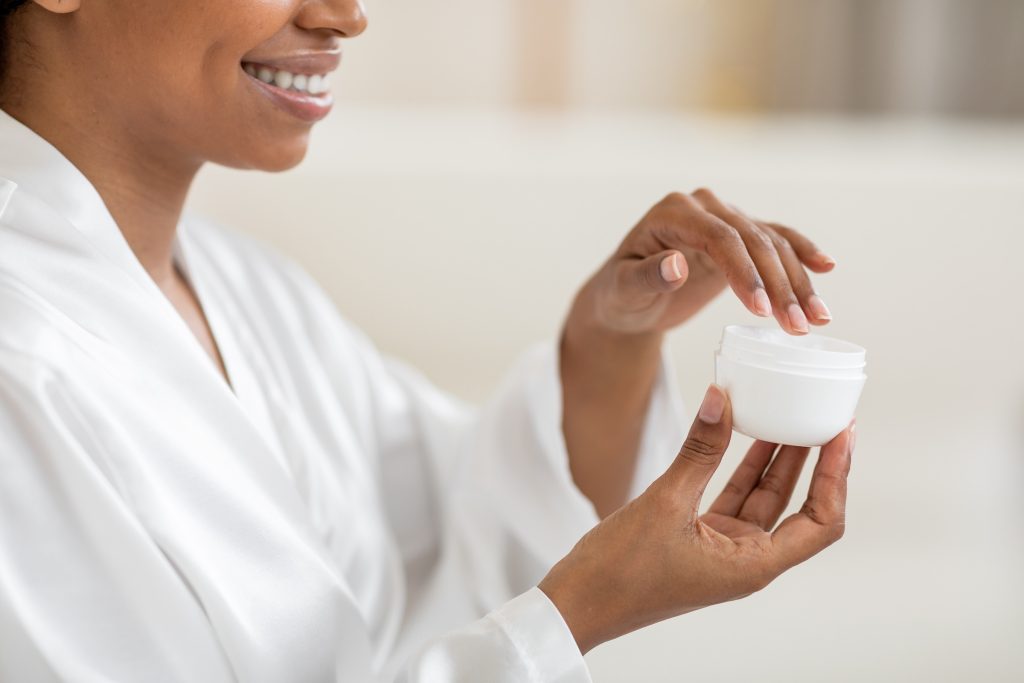
There are a few different topical forms to know:
- Zinc oxide, a physical sunscreen filter that also soothes irritated skin
- Zinc sulfate, found in anti-acne solutions (though it can be drying)
- Zinc pyrithione, antifungal and anti-inflammatory, which commonly used in dandruff shampoos and treatments
A zinc-rich diet is another way to support your skin—from the inside out. Your body doesn’t store zinc, so you need a steady supply, especially if you’re dealing with acne, inflammation, or a compromised skin barrier.
Most likely, your diet already includes some zinc-rich foods. You can find zinc in:
- Oysters (nature’s highest source of zinc)
- Red meat, poultry, and eggs
- Pumpkin seeds, cashews, lentils
- Chickpeas, whole grains, and dairy products
Zinc supplements for skin can be helpful too, especially for those with more stubborn conditions. Studies suggest oral zinc is effective to treat such conditions as severe acne, rosacea, and psoriatic arthritis. Still, too much zinc internally can cause side effects. So always check with a doctor before adding any supplements to your diet.
But now let’s talk about the most common cases of using topical zinc for skin.
Zinc for Acne: A Proven Hero
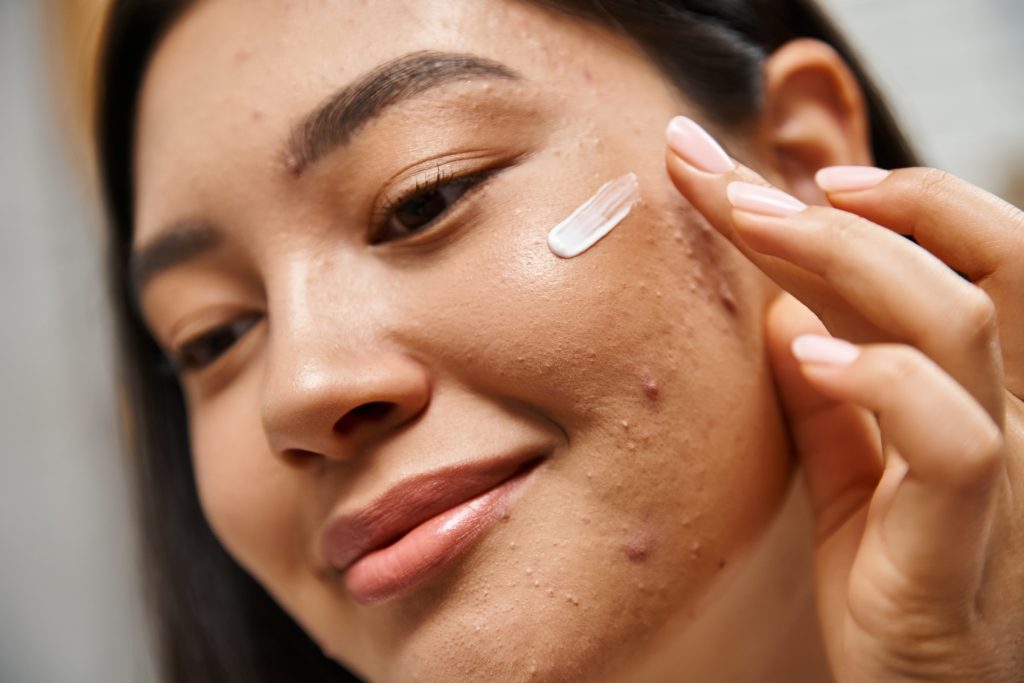
Acne might just be where zinc benefits for skin shine the brightest.
Several studies have shown that topical zinc, particularly in the form of zinc sulfate or zinc acetate, can help reduce the number and severity of acne lesions. It comes with anti-inflammatory and antibacterial powers that calm redness, soothe active pimples, and support healing.
For example, one study found that a 5% zinc sulfate solution significantly helped improve mild to moderate acne.
Another study, conducted decades ago, revealed that the topical treatments with zinc could be just as effective as oral antibiotics. And without the need to take pills.
Still not convinced? The combo of 4% erythromycin and 1.2% zinc acetate in one more study reduced acne severity, especially papules, pustules, and clogged pores, compared to a placebo. After a year of use, no serious side effects or infections were reported.
Zinc for Eczema, Psoriasis, and Seborrhoeic Dermatitis
They all fall under the “inflammatory skin conditions” category, and zinc’s calming powers make it a superstar here, too.
Eczema
Zinc helps reduce inflammation and prevent infection, which is especially important when the barrier is compromised (like in eczema). Zinc can be helpful in diaper rash (zinc oxide pastes are a classic) and a great addition to the treatment of chronic hand eczema.
One study showed that combining zinc sulfate with a steroid cream improved symptoms more than the steroid alone.
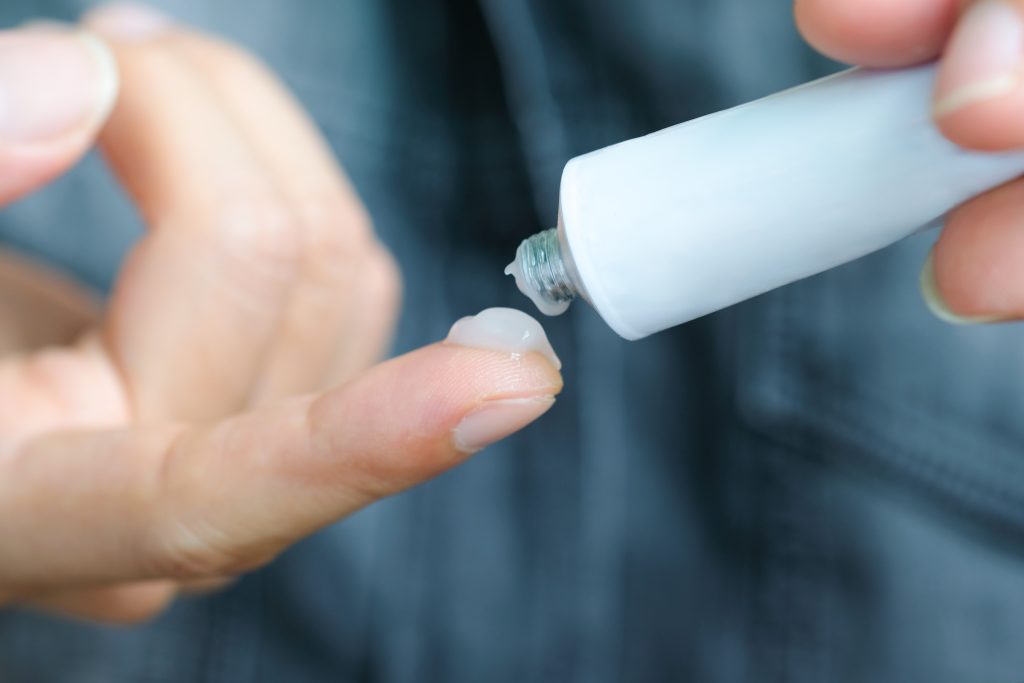
Zinc oxide textiles (yes, fabrics infused with zinc) have even demonstrated promise in atopic dermatitis by improving itching, sleep quality, and skin appearance.
Psoriasis
Psoriasis is a long-lasting skin condition that can be hard to treat. In a clinical trial, a cream with 0.25% zinc pyrithione was used twice a day for three months. It worked much better than a regular moisturizer alone. The study showed clear improvement in localized plaque psoriasis.
Seborrhoeic Dermatitis
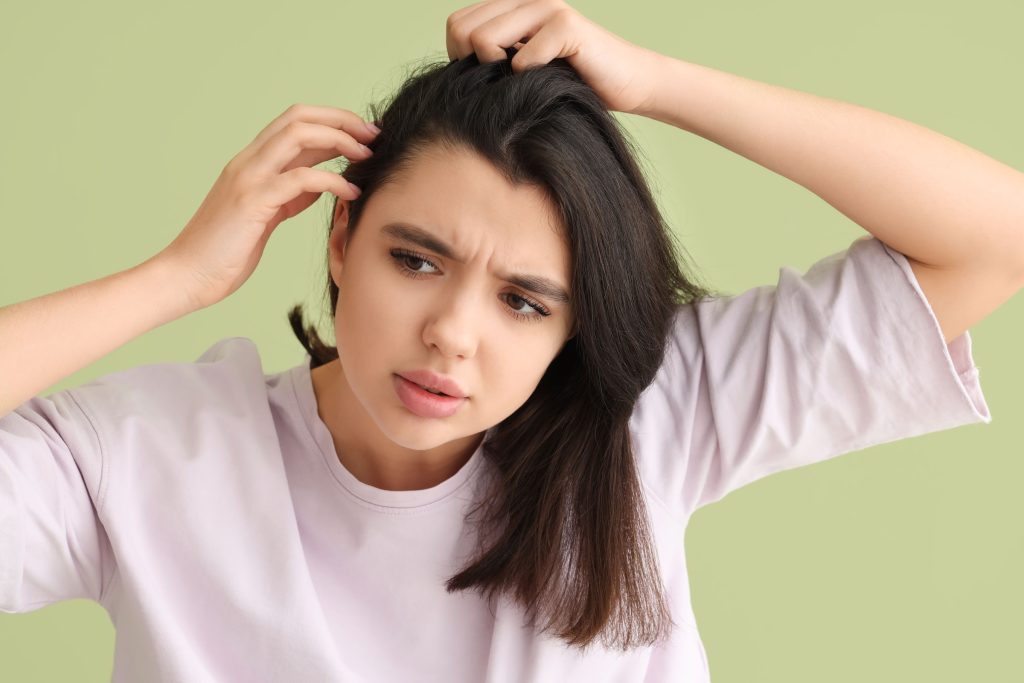
Ever used a dandruff shampoo with zinc? That’s zinc pyrithione, a well-studied ingredient that helps fight the yeast responsible for flakes and itch. Research shows it can reduce dandruff and yeast levels, especially with regular use.
While ketoconazole may work better for more severe scalp cases, zinc pyrithione still showed strong results. In a clinical trial, both ingredients helped reduce dandruff and seborrheic dermatitis, but ketoconazole 2% was slightly more effective than zinc pyrithione 1%. Still, both shampoos were well tolerated and showed clear benefits when used regularly.
Want to keep your scalp and hair in top shape this summer? Check out our guide on how to care for your hair in the heat.
Zinc as an Anti-Aging Ingredient
Zinc doesn’t just fight acne—it fights wrinkles, too.
Because it assists in collagen synthesis, zinc helps maintain skin elasticity and reduce signs of aging. One study using a 0.1% copper-zinc malonate cream showed a visible reduction in wrinkles and improvement in skin texture after just 6 weeks.
It’s no miracle ingredient, but it can definitely complement your anti-aging routine. Still, don’t forget about the main heroes of this routine, such as retinol or peptides.
Zinc for Sun Protection
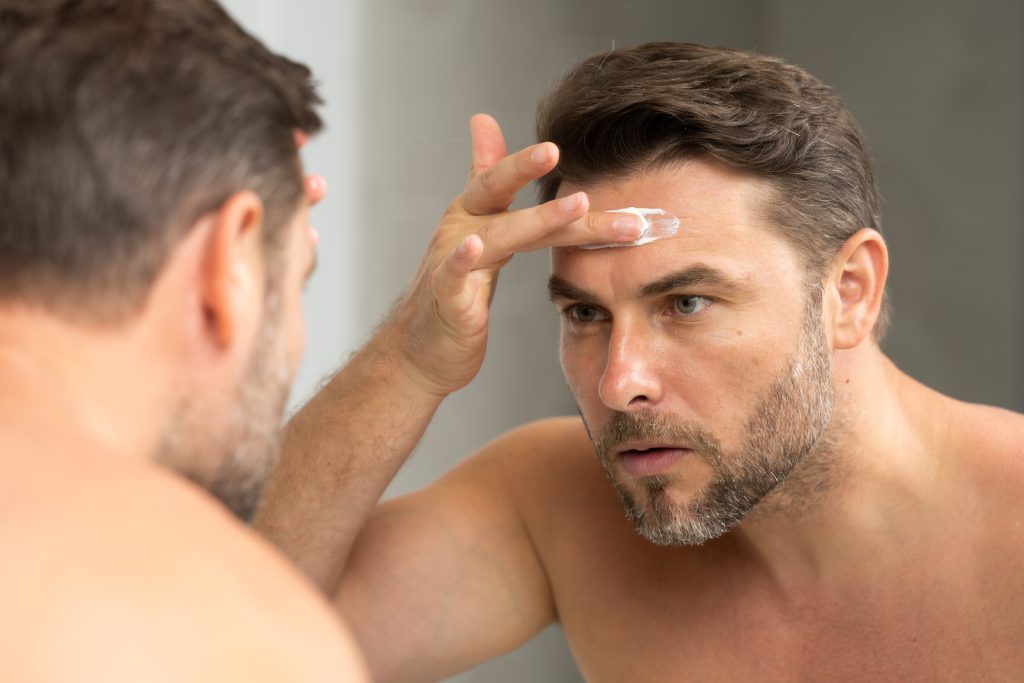
Zinc oxide is one of the best physical sunscreen filters out there. It sits on the skin’s surface and reflects UV rays, offering broad-spectrum protection, including UVA rays (which are harder to block).
It’s also:
- Non-irritating (great for sensitive skin)
- Antioxidant-rich, helping reduce UV-related skin damage
Pro tip. If you hate that white cast, try applying your mineral sunscreen with gentle tapping instead of rubbing. This helps it blend better into the skin and reduces streaks or white patches.
Want to learn more? Check out our guide to sunscreen filters to find the right one for your skin.
Final Glow-Up Thought
If you’ve been sleeping on zinc in skin care, now’s the time to wake up. Whether you’re battling breakouts, soothing flare-ups, protecting your skin from the sun, or just trying to age like fine wine, zinc for face routines can make a visible difference.
Want to check if your favorite moisturizer or SPF with zinc is a good match for your skin? Use OnSkin—it scans product ingredients and spots your skin’s best friends and worst enemies. No more guessing, just glowing.
FAQ
-
Where do I start with OnSkin?
Download the app and think of a product you’d like to know more about. Then, go to the main screen and choose how you’d like to get the info —by manually looking it up in the search bar, by scanning its barcode, or by simply taking a picture of the packaging. Once you’ve done any of these, you can see how safe the product is and if it suits your skin or hair (if this analysis is available).
-
What is Safety Rating, and how is it calculated?
In OnSkin, we base product rates on ingredients. Each is closely studied by our medical team and then evaluated. This way, each product gets a score from 0 to 100, with 100 as the safest level.
Safety Levels
- Excellent (76–100)
- Good (51–75)
- Not great (26–50)
- Bad (0–25)
These scores are backed by the latest scientific studies. You can find links to the resources we’ve used on each ingredient page. To assess the safety of product ingredients, we evaluate them according to the following parameters/criteria
- Endocrine disruption risk / Reproductive toxicity
Indicates the probability of mimicking, blocking, or interfering with the body hormones.
- Сarcinogenicity
Measures the potential risk of inducing cancer.
- Allergy risk
Estimates the probability of an allergic reaction.
- High concentration alert
Determines the risk of being unsafe in certain amounts.
-
What is Skin Match?
Based on the info you input about your skin type, age, skin care goal, and other “settings,” OnSkin checks how well a product is tailored to your unique skin needs — it’s basically like a dermatologist helping you find the right products, minus the fees and the long wait. The product you’re checking might be labeled as It’s a match!, Hit-or-miss, or Not a match for you. The app also detects ingredient groups such as Anti-acne, Anti-inflammatory, Moisturizes, May be drying, Comedogenic, and others — by tapping one, you see exactly what ingredients from this or that group are in the product.
-
I seem to have a problem with using the app. Who should I contact?
Please reach out to us at [email protected], and we’ll carefully look into your issue. Your ideas for improving the app are also very welcome!
-
Do you have an Android version?
Not yet! Hey Android users, we hear you, and we're thinking about making an Android version, but we haven't started the development yet.
Tracker Sent!
It’s on the way to your inbox.


